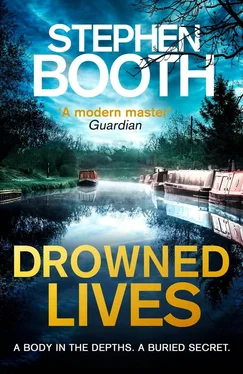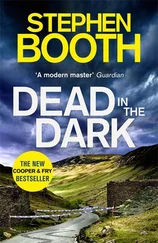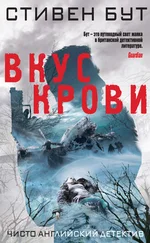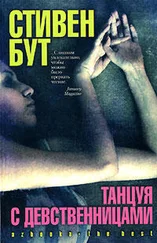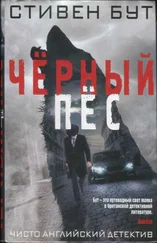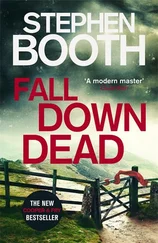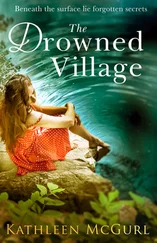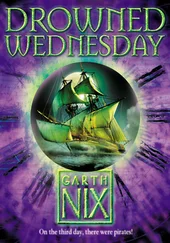But I continued my prepared speech. ‘And my Great-Uncle Samuel. That was your big mistake. Whatever he knew about you and Lindley Simpson, he wasn’t putting the information away for future use. The fact is, he just wasn’t interested. It was irrelevant to him. It had no bearing on his book, you see. I suppose you thought the book was an excuse for doing some digging, exposing all those old skeletons. And you thought I’d taken over from him — another troublemaker from the Buckley family. But you don’t seem to be able to grasp that my great-uncle was genuinely only interested in the book. He never kept anything that didn’t relate to the story of William and Josiah Buckley.’
‘But there were letters he had—’
‘There’s no trace of them. It seems he didn’t keep them, so your secrets would have been safe. If only he hadn’t died.’
That seemed to get through to him. And it was true, too. If Samuel hadn’t been killed, I wouldn’t have gone through everything I’d experienced since, and I wouldn’t be here now.
‘I don’t believe it,’ said Leo. ‘He was a Buckley, like you. The Buckleys have always hated our family. Always. And I don’t believe Samuel was any different. Not if he had Buckley blood.’
‘So what did you do? I don’t believe you’d have run him over yourself. I can see you’re not the type to get blood on your own hands. Who did you hire? Simon Monks?’ I watched his face carefully for a reaction, but there was none. ‘That would be a wonderful irony, wouldn’t it? A typical Parker masterstroke — you’d have it in your power to destroy Caroline too. Are you hoping that I’ll do the job for you? Well, I’ll do whatever I must to achieve what Great-Uncle Samuel wanted — to bring the Parkers down.’
I stood up to leave, feeling my limbs trembling with the anger that had built up in me. I’d almost given him enough to be thinking about for now. But not quite.
‘Perhaps my family had good reason to hate yours,’ I said. ‘Did you ever think about that? One thing I’ve discovered is what Mary did to Samuel and George. I don’t care about all the rest, William and Josiah and all that. That’s ancient history. But what Mary did was enough. And now all you’re concerned about is protecting her reputation. I believe you’ll go to any lengths to do it. My Great-Uncle Samuel knew that, too. And I intend to prove exactly how the Parkers were involved in his death.’
Parker heard me out impassively as I blurted out this claim. I’d intended to make it my exit line, to leave him stunned by the strength of my anger, puncture his complacency and leave him in no doubt that I was a man to be afraid of.
But before I could reach the door of the study, he spoke calmly.
‘Christopher, there’s something you need to know. When you’ve heard it, you might think differently.’
There was authority in his words, but an odd compassion too, which completely disarmed me. Immediately I weakened and subsided into the chair, feeling suddenly apprehensive. Too many people had told me there were things I needed to know, and it invariably preceded some awful secret that had been kept from me. Something that I needed to know, but didn’t want to.
‘I suspect, from what you’ve been saying,’ he said, ‘that you still don’t know the reason for the estrangement in your family, the rift between Samuel and his brother George. Perhaps it’s time you were enlightened.’
I waited submissively. How could I possibly admit that he was right? My pride wouldn’t let me accept for one moment that a man like Leo Parker could be in possession of knowledge about my own family that had been denied to me. In fact, I had to suppress a ridiculous surge of gratitude that he was willing to share this information with me. With just one sentence, he had me eating out of his hand.
He looked at his watch. ‘I really am out of time. I must walk down to the stables to look at a horse. But if you want to hear the truth and you promise simply to listen, you can come with me.’
I trailed after him down the passage and into a utility room with a quarry-tiled floor, where he put on wellingtons and a waxed jacket over his suit, instantly transforming himself into a gentleman farmer. He picked up a stick and we went out through a back door onto a gravel path that led towards the stable block.
Parker didn’t specify where he’d got the information he based his story on. He didn’t need to. It was obvious that his family had never made it a secret in the way mine had. As he spoke, his words raised tears of frustration at the fact that I’d been reduced to relying on a stranger for details of my own history. Because it was my history. It was where I’d come from.
The story began with Mary Parker. She’d been trained as a teacher, said Leo. Though she taught for a while at the girls’ grammar school, Lichfield Friary, she’d never really intended to make a career in education, being more interested in finding a well-off husband and living in comfort for the rest of her life.
Leo showed me a photograph of her that he’d brought from the study. She was posing with a class of teenage girls who were dressed in dark tunics and white blouses with wide collars. Mary was tall and elegant, with a narrow waist and thick waves of dark, burnished hair that fell round her ears. And there was that direct gaze I recalled so well, eyes that seemed to burn through the lens of the camera.
Mary had married my grandfather, George Buckley, in 1938. George had been a brilliant young corporate accountant and had just been made a partner in a Birmingham firm when Mary was introduced to him in Beacon Park after the annual Bower Queen parade. George had been smitten from the start, and proposed within a few months.
Mary must have been banking on a husband with a guaranteed high-flying career. Accountancy was a safe profession, and corporate accounting was where all the money was. This illusion survived for about twelve months, during which time Mary give birth to Arthur, my father. He was born in July 1939.
‘Less than two months before the start of the Second World War,’ said Leo.
We walked across a terrace and past some kind of annexe attached to the back of the house until we reached a concrete yard.
At the stables, Leo Parker paused in his story. A teenage girl in jodhpurs and a hacking jacket was leading an elegant hunter into a railed-off paddock on a long rein. She glanced only once at Parker, who nodded, then ignored her.
‘I know that Great-Uncle Samuel joined up,’ I said. ‘I suppose my grandfather did as well.’
‘Yes, but they went their separate ways. George was three years older, you know, and for a long time Samuel hero-worshipped him. But the two boys were very different. George had gone for a safe career, but Samuel was more adventurous. When they joined up, it was almost like a competition. They’d both been in the cadet corps at school, and they went straight into commissions. I’m explaining to you what my stepmother told me, of course.’
‘I understand.’
He told me that my grandfather had been recruited into the Pay Corps, which seemed a natural route for one of his talents and training, and would have meant a safe billet away from the Front. But Samuel had scorned such easy options and had surprised everybody by joining the Royal Navy. After a period of training in Devon, he’d become a junior officer on a minesweeper operating in the killing grounds of the North Atlantic supply routes. A few months later, my grandfather had obtained a new posting for himself. He’d transferred to the South Staffordshire Regiment, which was then serving in North Africa, resisting the Italian invasion of Egypt. By the summer of 1940, both the Buckley brothers were in the thick of the action.
Читать дальше
